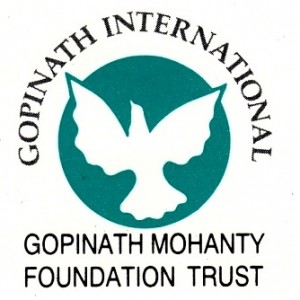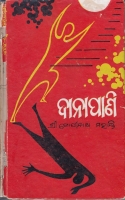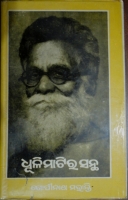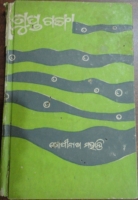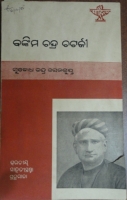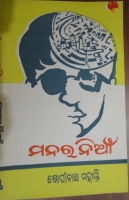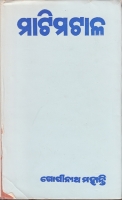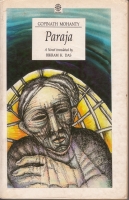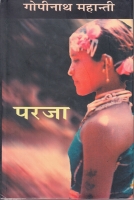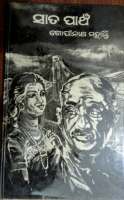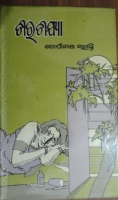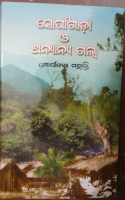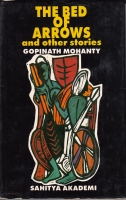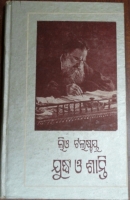Short Story Collections
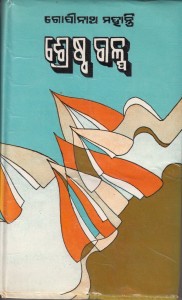
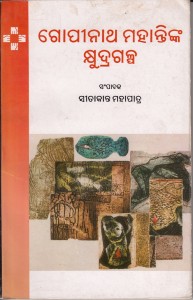
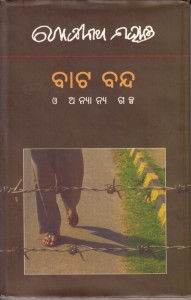
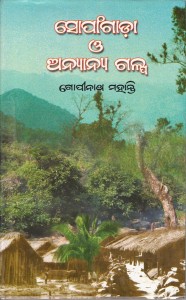
Some Short Stories
All Names Forgotten
One morning, at around eight o’clock, it dawned on Ashok that his memory was failing him: he could no longer recall peoples’ names. As a man about town, a busy and prominent representative of polite society, he was normally here, there, everywhere – all over the place; you could expect to run into him no fewer than half a dozen times a day, and as much in the remote back streets as along the major thoroughfares. You’d catch sight of the back of him speeding off, skillfully weaving his way through a crowd, on his Hercules, with its huge shiny bell fitted to the handlebars, ringing out more like a bell on a horse carriage. Handsome, healthy and young, he cut quite a figure on his old bicycle. Sometimes you’d spot him stopped at a roadside shop buying paan or cigarettes. At others, his bicycle propped against his hip, he’d be discovered holding forth to a crowd in the middle of a street on the burning issues of the day, or intently listening, thoughtfully exhaling curls of cigarette smoke through his pearly white teeth into his butterfly moustache. You simply couldn’t miss him: taller than most men and twice as broad, you’d encounter him as he walked along, his bicycle by his side, surrounded by a clutch of cronies and favour-seekers, being greeted from all quarters – from the middle and sides of the street, and from passing vehicles too: ‘Good day, Ashok. Good day, sir.’
Loss of memory for such a man was nothing short of disaster. Strangely, just the names were gone; no problem with anything else – his surroundings, awareness of the material world, events, incidents; he had no problem carrying on his legal profession, or transacting everyday commerce and discussing politics. And it wasn’t as if he’d forgotten every name. Far from it. He remembered, for example, the Himalayas, India, Kathjodi, and the names of several top leaders and leading lights of the nation. He had no problem remembering newspaper reports, distinguishing between Kher and Khare as reliably as between Cariappa and Coomarappa. But all other names seemed to have been wiped from his memory – the names of ordinary men and women, friends, acquaintances, relations, classmates, colleagues, people he had borrowed money from or had given small loans to, even people he knew as well as he knew himself. These people were as vital and significant to him as the breath he drew or the water he drank; they were the people his daily life revolved around. To forget their names – oh God!
Eight in the morning. Ashok raised his eyes from his morning cup of tea. The old spinach seller, a ragged dirty cloth wound around his head, a clump of white hair on his chest and a purple patch of eczema across his belly, was out on his daily rounds. What was his name – Gopia, Madhua, Jagua, what? He knew about him, and there were good reasons for that too. The image of the old man’s two-room thatched hut a short distance from the housing colony arose in his mind. A small courtyard with a green fence. A young daughter abandoned by her husband. One day, the old man had caught hold of him: ‘Sir, can’t you do me a favour? My poor little daughter has been deserted by her brute of a husband. He beat her and threw her out. Now the scoundrel has sacked up with some tramp and is having a good time, while my daughter’s languishing without two square meals a day. Sir, can’t you beat some sense into that wastrel’s head and make him cough up a few rupees for my daughter’s food and clothing? I’ll remain ever grateful; people will praise you for it.’
‘Fair enough,’ had answered Ashok to placate him. ‘One of these days I’ll drop by your place and get your daughter to give me the details. I won’t do anything until I hear about it right from the source.’
It panned out that there would more than just one visit; he dropped in at the old man’s hut many times for over a year. The memory of it all was still quite fresh. Why did God give a young woman fated for desertion and abandonment, doomed to being jilted by her rogue of a husband, such looks? And why did He bestow on an ordinary illiterate woman such wisdom and powers of poetry? Not only did Ashok secure the girl a bit of alimony from her husband, he added a little something from his own pocket. But suddenly one day the beautiful flower wilted and died, succumbing to smallpox. Her pitiable old father was still going around trying to make do by selling spinach. What was her name – Uma, Roma, Malli? Good heavens, he had plumb forgotten. How could he? He’d been so close to her.
‘Hey, old man,’ Ashok called out, wondering if he shouldn’t ask him her name. But what’d he think – that all these educated, well-dressed city slickers were all alike: they forgot someone’s name as soon as they were done with her. Ashok recollected the warmth and intimacy he had enjoyed with the girl; the memories remained intact and brought tears to his eyes. But her name eluded him. The old man would never forgive him if he asked. On the contrary, he might scorch him with the same yellow hard glare he had summoned when he had hit out against his son-in-law.
‘What is it, sir,’ the old man answered.
Ashok, nonplussed, distracted, feeling as if he was floating down a stream of memories, tried to skirt the issue. ‘I was wondering, do you have some sour ambadas?’ As soon as the words escaped his mouth he realised how foolish his question was. ‘Ambadas?’ The old man was quite surprised. ‘I never sell ambadas, you know that. Besides, this isn’t the season; you won’t find even a blossom on ambada trees at this time of the year.’
Ashok leapt to his feet and hurried inside the house.
It was since that moment that he had been torturing himself over his loss of memory. Come to think of it, the problem had begun some time ago. Just the other evening, at a social gathering, he had committed one of his worst gaffes: he had switched the names of the two ladies he was trying to introduce to someone. ‘This is Mrs Viswanathan, and this here is Mrs Parikshithan.’ Mrs Viswanathan had immediately corrected him, and the man had given him a crooked, contemptuous smile.
And now this morning, this problem with the old man and his daughter.
Out on the street, looking at all the people he knew, he realized he was totally unable to recollect their names. And the harder he tried the more confused he became. Wasn’t that fellow over there in front of that shop waiting to buy his paan Madhav? Madhav had borrowed two books from him some five months ago and dropped out of sight. ‘Shankar,’ Ashok called out. ‘Hey, Shankar.’
Unperturbed, unmindful, paying no attention to Ashok’s shouting, the man he thought was Madhav carried on with his conversation with the shopkeeper. ‘Hey, roll me a fresh paan. Why can’t you remember that I don’t have catechu in my paan? And make sure not to put any tobacco that has chua in it.’
By the time Ashok reached the shop Madhav was already on his saddle ready to pedal away. ‘What, sir,’ Ashok began. ‘You don’t seem to be heeding my calls. In a tearing hurry or what? Heavy burden of work, huh?’
‘Don’t even mention work!’ the fellow answered. ‘How I wish I were free like you. Long time no see. Tell me, how are you, is everything all right?’
‘Getting on, just about. Since you didn’t react when I called you I thought you’d forgotten me.’
‘Forget you? Were you calling me?’
‘Who else? And at the top of my voice too.’
‘Very strange! Where were my ears? I heard so many things – drumbeats, announcements about cattle straying into the municipal office compound being liable to be impounded and imprisoned in town cattle pens, a vegetable seller shouting ‘Squash for sale, fresh squash, and yes, somebody calling out to somebody named Shankar. Maybe this blessed Shankar’s got a paan shop somewhere here, maybe right behind this shop. But no response from Shankar. Everyone’s putting on airs these days, so why wouldn’t Shankar? But when did you call me?’
Ashok broke out in a sweat of embarrassment: so this man wasn’t Shankar. He was somebody else. What was his name? ‘Never mind,’ he said. ‘Maybe I didn’t call loud enough. After all, it was from quite a distance. And I was calling fairly softly.’
‘Whatever. That doesn’t say much about my hearing. I think I need to put mustard oil in my ears. Can you call me again as you did before, please, just once?’
‘Do you put mustard oil in your ears regularly? And some in your nostrils too? Here, have a smoke. By the way, have you finished reading those two books?’
‘What books?’
What a crisis. Ashok couldn’t recall the names of the books. ‘The ones you borrowed from me, you remember? It’d be great if you returned them. But of course if you aren’t finished yet, you can keep them for another seven or eight days.’
‘That’s very surprising, Ashok. Believe you me, I’ve borrowed no books from you. Give me their names, will you? I keep all my books in my front room cupboard, and I’ll have a thorough look.’
‘You seem to be out on some errand and might forget their names. Tell me when you’re usually at home and I’ll drop in.’
‘Today’s a holiday, so I’m getting to the bazaar late this morning. But I’m sure to be back by eleven o’clock. You’re welcome to drop in anytime afterwards. But take a good look in your own house. For all you know the books might be sitting right on your bookshelf and you’ve gone and forgotten about them. I don’t remember ever borrowing books or anything else from you. So the chances of finding your books at my place are mighty slim. Jog your memory, Ashok. Think where you might have mislaid them. All right, see you later.’
After the man had left Ashok watched him from behind for a long time. He was angry. The nerve! How coolly he had brushed him off. What a strange world.
‘Ashok,’ somebody hollered at him, breaking into his thoughts. ‘Ashok.’ Someone in a green half-sleeve shirt and khaki trousers, wearing a snuff-coloured felt hat, and carrying a leather bag, came rushing towards him. ‘Hello, hello,’ the man gushed, a broad smile crashing on his disintegrating front teeth held together by gold wire. ‘Ashok, how’re you, how’s everything, how have you been, all well?’
For the life of him Ashok couldn’t place the man. He seemed familiar all right. But who was he? Ashok tried but couldn’t put a name to the face. The fellow was behaving as if they had once been quite close. His clothes and appearance, his way of talking made Ashok think he must be an ACSO posted somewhere in the hills. Not a CSO for sure, not even a supervisor, just an ACSO. He couldn’t explain to himself why he had come to this conclusion. Sometimes his hunches turned out right; something would spring to mind and swirl around like a certainty.
‘Fill me in on yourself first,’ Ashok said. ‘We’re meeting after ages.’
‘Getting along. Not bad, you know.’
‘Good. What’s new?’
‘My father-in-law passed away.’
‘Not altogether unexpected. He was quite a ripe old man.’
‘A ripe old man, what do you mean? Do people become ripe old at the age of forty-five?’
‘Oh, these days everyone’s born an old man, you know. All that adulterated oil, adulterated ghee, watery milk – everything’s taking its toll, if you ask me. Not to speak of money worries, which never leave our minds for a second. Of course you’re lucky that way.’
The friend looked nonplussed. ‘Enough, stop it. We’re getting too personal.’
‘Well, let’s become impersonal, then. How’s work?’
‘Work? You must be reading the papers.’
‘Of course. Everyone reads the papers. But what’re your views and opinions?’
The man made a face. ‘Work is work, going on as it always does. What opinion can I possibly have?’
‘How’s your district collector?’
‘My district collector? What do you mean? What district collector?’
Ashok’s patience was wearing thin. So this man wasn’t even an ACSO. What was he – an insurance hound?
‘You must be reading the papers,’ the man repeated.
Ashok stared at him. A leather bag. Aggressive for no reason. Offering cigarettes into the bargain. All traps – snares. He could no longer mask his irritation. ‘Tell me your name, will you? It seems to have escaped me somehow.’
For the next two interminable minutes the friend sucked in and swallowed air noisily, fixing Ashok with a cold stare. ‘Good heavens, has it come to this? How could you have forgotten? I was your younger brother’s tutor for one whole year . . .’
‘My younger brother had one tutor too many.’
‘You and I took our law exams together.’
‘So did another two hundred and fifty people.’
‘I was so close to your father . . .’
‘You’d be surprised how many friends my father had.’
‘You and I ran into each other so often.’ The man seemed hurt and humiliated. ‘Have you forgotten all that?’
Ashok pushed his bicycle forward. ‘Cut it out and tell me your name.’
‘I see. Well then – my name’s Nilamadhav Das. I joined the IAS and am currently a commissioner in Kashmir. My father-in-law passed away last week. I had to take leave and come here. You’ve totally forgotten me, I can see. That’s kind of you, sir. Goodbye.’
Ashok winced in shame. ‘Oh, my God, we were so close. Inseparable like day and night. How you loved fried hot chops, and the Park Hotel was . . . Nari, forgive me. I remember everything now. How could I forget you? It might sadden you – I’ve had a nervous breakdown recently. Of late I kind of tend to forget. What can I do . . .? Tell me.’
‘Right-o.’ His friend didn’t seem to buy it. ‘Goodbye.’
‘Drop me a line from Kashmir,’ Ashok shouted to the back of the man, who had walked off in a huff.
As usual, people greeted him as he walked down the road: namaskar, good day, hello there, howdy. He responded, stopped to chitchat, to exchange pleasantries, to share news. But all throughout he was unable to recollect their names. He had known them all, most of them for a long, long time; he had shared so much of his bittersweet life with some of them. But now their names eluded him, and he was scared of addressing A as B, and C as something else. Already he was slipping into the habit of not using names when he called out to them, trying to make do with hey, hi, hello, sir, and so on.
But no matter what, he must recover those two books today. He looked around. Why, wasn’t that over there the home of the man who’d borrowed them? The world was full of people and homes; no one could be expected to grow up all by himself and live without others. They might belong to the same species, owe their origin to the same source, but individually they were so different from one another. As many homes, the saying goes, as brothers; as many husbands as brides. But how could he expect to manage if he forgot everyone’s name? He had to remember them, no matter how, buy and swallow whatever medicines he had to – tonics, capsules, pills, whatever. Names, oh names. The thread that connected the one to the many and the many to the one. That precious thread mustn’t be allowed to snap; it must be kept intact. As he mulled this over, his angry individualism began to evaporate and he felt his memory breaking into waves. He looked around again. Surely that house there was the home of the man he was looking for.
Worried, feeling sick, looking around, he wondered: what was the fellow’s name? What the hell was he called? And those two books – what were their names? He must get them back any damn how. All these people who considered themselves responsible members of civilized society – was it in their blood to conveniently forget when it came to returning borrowed books? No, he, Ashok, couldn’t possible give up. Private property would never be safe if he did. Therefore . . .
In his anguish he had forgotten that there was no need to remember people’s names if he went looking for them at their own homes. He could rely on calling out: hey, anybody home – guard, watchman, cook, houseboy? More often than not it was the master of the house who would appear in response: what is it, sir, who are you looking for?
Ashok saw the nameplate on the gate: M. C. Mohanty. Written in English. His face creased in a big smile of relief. But the next moment it clouded over again. Was that the fellow’s name? It seemed to be on the tip of his tongue. What did M.C. stand for – Manish Chandra, Mohan Charan? A lightning bolt of recollection streaked through his mind – Eureka! Markand Charan, that’s it, by God. ‘Markand,’ he called out confidently, his voice serious. ‘Markand, are you home?’
A woman appeared in the window, a look of surprise on her face. She seemed to be whispering to somebody. Presently a houseboy came out. ‘There’s no Markand or Farkand here, sir,’ he said gruffly. ‘Go try somewhere else.’
‘What, this isn’t Markand’s place? You think I don’t know? Go tell him it’s Ashok who’s looking for him.’
‘Who’s Markand, sir?’ The houseboy didn’t back down, he seemed to have scant regard for him. ‘You’re mistaken. I’m telling you, there’s no one named Markand here. Please look for him elsewhere.’ Then he spied a passing fishmonger on the road and called out: ‘Hey, fish-seller, come on up here, will you?’
Ashok’s irritation went up a notch. These smartasses – they understood only the townie tough language. Leaning his bicycle against his hip, puffing up his broad chest, he fixed the boy with an ominous stare: ‘Hey.’
‘What?’
‘You should understand . . .’
‘Understand what?’
‘What are you here?’
‘A servant.’
‘Ah. And what’s your salary, boy?’
‘What’s it to you? How does that concern you?’
‘Of course it concerns me. If a servant turns out to be a fool the employer suffers; if the servant is a devil the employer comes to grief; a servant that comes cheap proves costly in the long run. Look, I know this house inside out, you know that? Do you know who you’re fooling with, boy? What cheek! Trying to make me believe this isn’t Markand’s home! Do you know your master’s a dear old friend of mine? True, I haven’t shown up in a while, but I used to be a regular here at one time. And this very front room – I’ve sat here for hours and been entertained here countless times. What do you take me for? How dare you tangle with me?’ Somehow the face in the window seemed to encourage him into spewing it all out, as if inviting him to reveal his intimacy through anger.
‘Listen up, sir,’ the servant piped up in retaliation. ‘Look here . . .’ But a thin gentle voice from behind the window curtain commanded him to come inside. ‘Come here for a moment, Bhagia.’
The boy hurried inside and was back in the wink of an eye. ‘Sir, the mistress wishes to know when your friend Markand lived here.’ He tripped on his words, his haughtiness gone, but his indifference still quite palpable.
‘Oh, this is his place. He lives here, has always lived here. I last met him here nine months ago.’
A sharp jet of betel juice shot out of the window. The face was clearly visible now. ‘Bhagia, tell the gentleman,’ Ashok heard the woman saying, ‘we’ve lived here for the last five years and there’s been no Markand or Farkand around in all that time. The M.C. Mohanty who lives here is Madhav Chandra Mohanty. Tell him . . .’
Ashok didn’t linger a minute longer. He jumped on his bicycle and was off. The hot sun of reality seemed to be rising out of the mist of oblivion. Right, he thought, the Madhav he knew oh so well was Madhav Chandra Mohanty. To confuse Madhav with Markand – well, that was downright stupid, that’s for sure.
The face behind the window flashed across his vision and he felt a stab of shame. The face seemed to push him away: go, scram, vamoose.
Wasn’t that Madhav coming towards him? Ashok wondered. So then there was hope of retrieving those two books. But what if Madhav tried to drag him to his place? Oh, that face at the window . . . To hell with the books. He had to escape, run. He who runs survives, as goes the saying.
After he had covered some distance, the face at the window loomed up again – but this time along with another face, Kamali’s. Kamali was his neighbour’s daughter, who had called him brother since she was a child. She’d grown up, married and left her father’s home a long time ago. She was from a different caste and an unlikely candidate to have ended up as M.C. Mohanty’s better half.
But the resemblance was uncanny. Strange how his mind seemed to fill up and spill over at the recollection of the girl. Those brittle disintegrating pages of the past seemed to come alive like tender new shoots and leaves – green, beautiful, arranged in order. A wonderful fragrance seemed to waft in. The woman at the window had been the spitting image of Kamali.
A sense of relief stole sweetly over his tortured mind. One simply didn’t forget faces. They lodged in the deepest recesses of the heart and one could see their reflections in the mirrors of the mind. The past receded, relationships faded; life was long and had to be gone through. And all human beings were alike, created by the same god – they all behaved the same way in similar circumstances; their minds were alike, buffeted by the same waves of passion, sorrow and joy, a playground of light and shadow. The water of life remained the same – only the receptacles changed, varied. The reflections brought relief to his mind and gave him the sight to look within. Maybe he, Ashok, was in reality Madhav . . .
And that woman at the window, that spitting image of Kamali, was perhaps Kamali.
True, he hadn’t married. But so what? That little child running about in front of that house over there – well, he could have been his, Ashok’s, child. Could’ve been, but wasn’t. Oh, so what? Once you forget names everyone’s alike.
A pall of gloom crept over him. Days were passing and he was far from settled. And now this affliction of loss of memory even before his youth was over – why? Was it a balm nature had provided for a tortured, anguished mind?
Ashok raised his head and looked around. There, there, that fellow there – hadn’t he borrowed thirty rupees from him? How could he forget? What was his name?
The suspect was on the verge of vanishing into a side street. Ashok couldn’t wait; he jumped on his bicycle and pedaled as fast as he could to catch up.
Knockout
The day Jaga Palei of Sagadia Sahi trounced Ram Lawan Pandey of Darbhanga in the semis of the all-India wrestling championship, the sky above Barabati Stadium exploded with screams and shouts from the excited spectators who had turned up by the thousands at the Fort grounds. ‘Not just Jaga Palei’s victory,’ went up the cry. ‘Odisha’s – Odisha’s victory, Odisha’s triumph.’ That was how everyone felt. The desire to catch a closer glimpse of the unknown, unheard of wrestler, who had suddenly come to symbolize the aspirations, hopes and pride of the crowd, was so overpowering that the roiling waves of the sea of humanity cascaded into a torrent, leaving at least twenty-one persons injured, all of whom had to be carted off to the hospital. The unruliness of the crowd assumed such proportions that the police had to be called in.
Many of the spectators returned home at the end of the match bruised and wounded, their clothes in pieces. Many had lost their watches and pens, but none of that seemed to matter: they were all intoxicated by the heroic feat – taking great pride in being Odias, expressing their Odia nationalism. As if each of them was Jaga Palei himself, no less.
The papers the next day printed photographs of the wrestling match. The local ones carried screaming headlines: Palei – Unquestioned Hero of Wrestling; Terrific Bout in Cuttack; Jaga Palei – Prince among Wrestlers; Fantastic Feat by Unvanquished Master; etc.
Even in the far-flung villages in the back of beyond the papers caused a huge stir when they arrived. Many cursed their luck for not having witnessed the momentous event. The level of regret nearly matched their disappointment at not being able to go and see the holy spring that had suddenly sprouted in a paddy-field bordering Mahidharapara village, or of not being able to make it to Puri to have a darshan of the Lord on the auspicious day of Govind-dwadashi. But there was also a surge of excitement and pride never experienced before. Many became downright emotional, breaking into tears. After all, Odisha had won!
The seven euphoric days that followed could have easily been dubbed Jaga Palei Week. The match was on everybody’s lips – in buses and trains, in hotels and village bhagavat-tungis meeting halls. It pushed all other news into the background – the blastoff of the first manned space flight to Mars, the assassination of Lumumba and the convulsions engulfing political life in the Congo, the results of the panchayat and zilla parishad elections. In the wedding receptions that took place that fortnight – literally in the thousands, since there were no auspicious dates in the twelve months to follow – people ambushed one another: ‘Did you make it to the Jaga Palei wrestling match? What was it like at ringside?’ Even those who hadn’t been there didn’t bat an eyelash: ‘Oh, simply out of this world. Superb.’ Admitting to have missed out on it would have been worse than confessing to a mortal sin.
Jaga Palei Week also saw the appearance of a paper-thin, five-page book of eulogy in verse, penned by some poet named Abid and priced at ten paise, doing roaring business in the busy squares, intersections, bazaars and other crowded places in many towns. Travelling salesmen played their harmoniums and sang out portions from the booklet in front of offices, in busy bus-stands and railway stations. The photo studios and picture framing shops – to say nothing of the tea-stalls and sweetshops – displayed framed photographs of the match.
Messages of congratulation flooded the newspaper offices from institutions and organizations nobody had ever heard of – the Alando Women’s Association, the Olans Youth Club, the Gabadasta Village Committee, the Bamphisahi Discussion Group, the Gangadhar Cultural Academy, the Uttarbad Kuchinda Children’s Society, the Recreation Club of Ghisuri, etc. and etc.
The outcome of the match seemed to have a huge impact on thinkers, intellectuals and philosophers, too. At the annual function of the Fishmongers Literary Society a well-known speaker invited to speak on Kalidas’s celebrated play Abhijnan Shakuntalam could not refrain from citing the heroism of the Kalingas and Emperor Kharvel’s Magadh expedition, but also the appearance of the messenger of death from Rabi Tagore’s Two Bighas of Land. It didn’t go unnoticed that he discreetly wiped away a tear. The next speaker, who was to just propose a vote of thanks, became so carried away that he dwelt at length on the post-1803 exploitation of Odisha and outlined the causes of the dwindling importance of Sanskrit literature. All the speeches seemed to be animated by the same air of excitement as when a wheel stuck in the mud is at last pulled free. And there also seemed to be some pain too, as if an unhealed wound had been reopened: people were once again expressing sorrow, talking bitterly of lands lost, territories ceded – Sareikala, Kharsuan, Medinipur, Manjusha, Bastar . . .
While all this fuss was going on, Jaga Palei was back at his daily job of carrying heavy loads on his back at the goods godown – his source of income since he was fifteen, right from the day his father, Uddhav Palei, got drenched to the skin while driving a moneylender’s cart on a rainy day and took to his bed, never to leave it again. Pneumonia. Chhota Mian, the exorcist from Mohmmadia Bazaar, came and blew on him and reeled off a string of incantations; Govind Ghadei of Tenka, who was always displaying his remedies for sale in the district office courtyard, proposed four types of medicine – bitter, sour, hot and salty – worth a whole rupee and three-quarters; Karuna Gosain, the priest of Tinigheria, prescribed a sure-fire cure – offer eighteen bundles of straw to stray cows on Wednesdays and pay them obeisance by stretching full out in the dust in the street, touching their hooves. But nothing worked, and in the end Uddhav passed away without knowing whether a medicine for pneumonia had been discovered.
Big town, inhospitable town. The bread-earning father gone. No decent source of livelihood. No savings. No help. On top of all that the vulture eyes of the better-off neighbours coveting their two-room thatched house on three gunthas of land. A poor widow, two young sons, Jaga and Khaga, in their teens, and a twelve-year-old daughter, Sara. Well-wishers descended on them in droves. Advice poured in in torrents: sell this place and move to someplace cheaper; with the money you can build a shanty and still have enough left to start a small business. It seemed to make sense too. Even in a congested narrow lane way off the main road land prices had shot up to seven hundred rupees a guntha, and their homestead would easily fetch three thousand rupees. A small piece of land in or around Tulsipur or Bidanasi or Uttampur, or behind the town cattle-pens, and building a house on it wouldn’t take half of that.
Besides, their present location was nothing much to brag about – the dirty town drain was directly at the back; a dank stagnant pool with bubbles rising from its bed lay on the right; a miserable slum to the left. And in front, a narrow lane, just about six or seven hand-spans wide, running behind the high boundary wall of moneylender Garibdas’s two-storey mansion. Through a gaping hole in the wall the wastewater from the mansion flowed out and collected in a pool; the whole place was eternally mired in mud. But despite all the disadvantages Uddhav Palei hadn’t sold off his three-generation-old homestead. Neither would his widow and sons now; they would stick it out. So much for the advice of well-wishers.
Then came another bit of advice: sell themselves as servants and labourers. How else could they hope to eke out a living? At fifteen, Jaga had grown into a strapping young lad people stopped to watch. Someone wanted him to ply his bullock-cart, somebody else asked him to learn woodcutting and sawing, many sent offers of work in their shops. One babu was after him: start as my houseboy and in due time I’ll find you an opening as an office peon. Someone whose job it was to make the rounds of the homes of the rich and the influential came to Jaga and said: look, boy, fate is beginning to smile on you, so and so saw you god knows where and is so taken that he’s asked me to make you an offer. No hard work, mind you. Just be his bodyguard, keep him company, go with him wherever he goes, maybe do a few odd jobs for him once in a while. In return, you’ll get all the food you can eat; there’ll be plenty of tips, presents and hand-me-downs, to speak nothing of an attractive salary. Boy, your feet will never touch the ground again, you’ll travel in cars and aeroplanes, wear expensive clothes and eat only the best food. People wanting to curry favour with the boss will catch hold of you first; you’ll decide who to oblige and who not to. You’ll become a centre of power yourself. Maybe you’re not aware of this, but whoever this benefactor has taken under his wings in the past has grown into somebody to be reckoned with. He’s in a class of his own, this big man – money to him is what clods of earth are to us. Keep that in mind.
Jaga Palei listened to everything in silence. A voice within kept telling him: Jaga, lend no ear, shut your eyes, don’t give way, don’t buckle under, be nobody’s servant. A dog is still just a dog, no matter how glossy his fur or how thick his tail, or how well-filled out his body; he has to run whenever his master calls, wag his tail, lick his master’s boots, wear a collar around his neck. True, when he travels with his master in a car, his snout proudly thrust out the window, onlookers, impressed, might comment on his style and bearing, but a dog is still a dog, nothing more. It was as if the blood coursing through the body of the fifteen-year-old Jaga Palei had imprinted this picture on his mind. The sense of pride and self-respect preserved through three generations had not diminished in all the years of town living.
So, turning his back on the honey-coated, syrupy-sweet offers and advice, Jaga chose the independence of a daily wager, a load-carrier. Not only did his mother not protest, she pitched in to help: aided by her daughter she turned one of their rooms into a snack-shop selling fries, crisps, pancakes and steam cakes. She had a magic touch. Sales soared. The younger son Khaga sold hot grams and peanuts around town before landing a steady job as a bidi roller. The family of four hung on – no one perished, the house and land didn’t have to be put up for sale. True, from the outside everything seemed the same as before, but outsiders had little idea of the pangs of hunger they willingly suffered or the number of times they denied themselves the mouth-watering fries and crisps they prepared daily.
Jaga had only one passion: bodybuilding. The old caliph of Sagadia Sahi, his godfather, was his inspiration. As fair as a ripe mango, with a physique the object of envy of young men, a flowing beard that reached down to his chest, a childlike innocent twinkle in his tiny bluish eyes and a green turban on his head, the old man had once shaken Jaga by his shoulder when he was a small boy and said: ‘Son, why haven’t you joined our gym? You seem promising.’ Then turning to his father Uddhav, he had added: ‘Hey, give the boy to me and I’ll make a great wrestler out of him.’ With a laugh, Uddhav had replied: ‘So go on, take him. I’m giving him to you.’ That was how it had all started and continued ever since.
The gym was a small courtyard encircled by a wall a man-and-a-half-high under the shade of an old tamarind tree. The ancient two-room hut in front served as the caliph’s dwelling. No wife, no children – nobody knew if they’d ever existed, all his passion centred on his famous gym.
In the small hours of the day, when it was still quite dark, Jaga would arrive and go through his routine – pushups, stick play, acrobatics, gymnastics, followed by muscle-building and, finally, wrestling. Boys came and went, some joined only to drop out the next day, but not a single day passed when Jaga didn’t reach the gym in the early hours or leave it only after having gone through his entire routine.
The old teacher knew all the accomplished wrestlers in and out of the town, the gyms they belonged to, their pedigree, their strengths and weaknesses. Sometimes he’d get news of some visiting wrestler from out of town and invite him over for contests with his boys. Jaga had won every single bout in the last three years; never once had he lost even a round. Every wrestler worth his salt, every aficionado of wrestling around the town had come to know him, and they all conceded that the boy’s body was iron, his grasp vice-like, his energy inexhaustible, his movements lightning quick and that of all the acolytes he alone had picked up all the tricks and nuances of wrestling the old Umar had to offer. But these people who knew, the people who kept abreast of the wrestlers and wrestling, were not the office-goers, opinion-makers, men of influence. Some of them only owned small paan shops, or sold fruit or were greengrocers; many were tailors, butchers, bullock-cart drivers, motor-car drivers, carpenters, all men of small trades and humble professions, all caught up in the daily grind of making a living, all averse to talking big or showing off. Besides, there were old Umar’s rules and injunctions: no showing off, no publicity, no strutting, no puffing up your chest to impress or scare the weak, no taking it out on them – no twisting their arms, no tripping them.
Even as his practice continued and he filled out nicely like a fine professional wrestler, Jaga had to spurn a slew of job offers. Many wanted him as a watchman. The job was nothing punishing, it was explained. Just slip on some kind of uniform and stand at the gate with a stick or a gun; the pay was good and the food plenty. Some wanted him as a facilitator – as a Kichak, doing what Kichak did for King Virat, providing him with crucial protection during his reign; in plain terms, as a goonda. Lately many new professions and businesses had emerged which badly needed the services of a Kichak. The master would simply have to discreetly point out an enemy and Kichak would take care of him. From glaring threateningly at offenders to breaking their bones, from forcibly confining them to their homes until a crucial moment had passed to pelting stones at their houses at night, from bad-mouthing someone in the vilest possible language in public to stripping him of his self-respect – the methods were many. When push came to shove and criminal proceedings ensued, the master would remain in the background but pitch in with legal help, and the hearings could go on and on. Then there was one truly startling offer: to marry the only daughter of a well-to-do man and inherit his property, but on the condition that he permanently move in with the in-laws. Apparently the darling daughter had glimpsed him from the window of her upstairs room and been smitten right and proper. Jaga turned it down. He carried on with his chosen profession: carrying loads, covered with dust, dirt, grime and rice husks, getting paid by the bag.
After his triumph that day he found strangers jostling around him. Light bulbs flashed ceaselessly from all sides and people photographed every inch of his body from every angle. Then there were the questions, flying thick and fast; he could hardly keep up with the flurry. How long have you been practicing? Who’s your guru? What – Umar the caliph? Who have you beaten before this? Can you give us a list of your victories? What prizes have you won? What’s your daily diet – what kind of food and how much? Are you married? How many children? What do you do to keep fit? What do you think makes for a long healthy life?
From the surging crowd somebody piped up: Do you agree that vegetable oil is healthy? What, you’ve never taken it? Oh no, please don’t say that.
Then a fresh barrage: How many cups of tea do you take a day? What, not even one? No tea at all? Come on, no lies, sir, please! Do you smoke, take paan, use gudakhu tobacco? Which political party do you support? What are your views on the recent changes in the country? When are you free to give an interview? What do you think of our product? Can we publish your endorsement with your signed photograph and show the slides in cinema halls? We can negotiate the terms – can’t we? Sir, give us an autograph, will you?
The crowd swelled, shoving and pushing; pulsating waves ended many a question because no questioner could hold on to his place for more than a split second.
Bewildered, fidgety, suffocated, Jaga Palei retreated into silence. He folded his palms, begging to be left alone. Cameras clicked, photos were taken. Then he broke cover and ran, afraid the crowd might give chase.
The first person he rushed to was his guru the caliph, at whose feet he prostrated himself respectfully. The old man hugged him. ‘Wah, well-done, son,’ he said, playfully rubbing his flowing beard across the young man’s chest and back. ‘You’ve done us proud, son.’
Little of what the rest said in his praise cut any ice with him, he didn’t let any of it go to his head. It was all very simple to him: in every contest someone won and another lost, that was all there was to it, what was all the fuss about?
After meeting the caliph he went to the roofless temple, where listening to the prayers rising above the vigorous beat of tambourines helped him to relax and unwind. But on the way back home he overheard scraps of conversation and radio broadcasts about his victory. Shortly afterwards newspaper vendors began to rush about with bundles of the evening editions under their arms, hoarsely announcing the same news. The cacophony made his head swim, and instead of going home he took refuge on the Kathjodi riverbank, where he sat quietly long into the night. When he got back home he found a lavish spread laid out for him – rice, dal, mashed potatoes, fried aubergines and fish curry. His family gave him hugs and pats, praising him in their own way. There were few neighbours, and that was a big relief.
The next morning he resumed his old life – training before sunrise and carrying loads afterwards.
Although he hadn’t breathed a word of his life and profession to anyone, the next day’s papers carried fairly accurate reports about him. Somehow, without his knowing how, the details had leaked out. Like a fog rolling in, the news had swirled over to the goods yard where he made his living. People there stopped and congratulated him, asked him questions about the bout, explained how his feat had brought as much fame to him as to Odisha, painted rosy pictures of his bright future. If he won the upcoming finals the rejoicing would be unimaginable, and it’d open the door to trips overseas. Off he’d fly to countries like Sri Lanka, Singapore, Mongolia, China, Japan, Russia, Germany, America, Africa and many others, to take part in fights. He’d be feted. It’d be time for earning big bucks too. He must train to win the finals, watch his diet and general physical condition, not skimp on fruit, meat, milk or vitamins, hold high the prestige of Odisha and India . . .
The deluge of advice and suggestions made Jaga grunt and sigh. Meat he’d seen only in butchers’ stalls, hanging from hooks. Milk was something he’d hardly tasted. An occasional banana or coconut was all the fruit he’d ever sampled. Sometimes he wished he could have a full seer of rice flakes everyday, instead of the half-seer he had to make do with. The household budget was always more than tight.
A few days later a group of coolies from down south descended on the town with their families in tow. They slept under trees out in the open, accepted beggarly wages, so desperate were they to keep body and soul together. No wonder wages fell drastically and Jaga made half or even less than what he had managed previously. As household expenses went up, his income came down. Then one day his younger brother Khaga, on his way back home at the end of a tiring day at the bidi factory, was run over by a car. HIs legs and a few ribs were broken, and he had to be admitted to the hospital. Jaga’s days were filled with worry and anxiety.
Then a newcomer materialised from somewhere and opened a eatery at the end of their lane, where he sold crisps, fries, pancakes, steam cakes, sweets, curries and chutnies, besides tea. The food was served on squeaky clean plates. There was an overhead fan and a radio blaring music. Jaga’s mother’s cake shop folded and destitution seemed to be closing in on the family from all sides.
But Jaga still carried on with his training. His daily ration of half a seer of rice flakes dropped to a quarter seer, he couldn’t afford to spend more than four annas on rice puffs a day, half a coconut came his way only once in three days. Rice gruel cooked with poi spinach, leaves and stems, was all he had to fill up his belly, and it was forever on fire from hunger.
Often when he had no work to do and no one to look him up, he remained lost in his thoughts. He felt utterly forsaken, completely bereft of friends and well-wishers. The buzz about the wrestling match had tapered off.
Three months passed. Then came the day of the contest between Dalip Singh from the Punjab and Jaga Palei of Odisha.
The papers carried stories and predictions.
Jaga Palei pitted his consummate skill and artistry against the brute strength of the strapping Dalip Singh. Fortunes swung – many a time it seemed Palei would finally get the better of the visitor, pin him down and knock him out. But in the end it was Dalip Singh who prevailed. The papers carried the winner’s biographical details the next day – the amount and the kind of food he ate, his weight chart, so on and so forth.
Jaga Palei had gone down – knocked out.
Discussions raged again – in crowded squares and on street corners, in buses and trains, everywhere.
Some castigated him for lowering Odisha’s prestige, but most were just upset, sad.
But it all faded in time.
And Jaga Palei went back to doing what he did best – training in the morning and load-carrying the rest of the day.
Going Home
The dark clouds had been gathering since morning, blotting out the sun, and in the dim light it was hard to make out whether it was dawn, midday or twilight. Time seemed to hang – still, endless, eternal, stretching ahead and around, like the road; everything rushing towards you and being swiftly left behind. Everything up ahead would soon be gone. The future would arrive and soon be lost in the past. Where was the present? Was there a present? Was it just a fickle shadow skittering, shimmering on the waters of memory? Alone in the back seat of his speeding car, Biswamurthy sighed. In seven months he’d turn fifty-eight; come the eighteenth of February he’d have to retire.
A deep sense of loneliness enveloped him like banks of cloud. The layers accumulated over the years seemed to peel off, the tangled knots seemed to come undone, a sudden lightness of being stole over his soul, and he felt himself dissolving into vapour.
He was totally oblivious to the other person in the car: Hussain, the driver, in his khaki uniform, his hands on the steering wheel and eyes on the road – a quiet man of few words, who never spoke unless spoken to and who seemed invisible. The car seemed to be on autopilot, driving itself, and on course too.
Biswamurthy leaned back heavily against the left window.
Tall and dark, Biswamurthy was long past his prime but no less imposing for that; his broad face, slightly hollowed out, was creased. His high forehead seemed even larger because of his receding hairline, his bald patch fringed by a circle of white hair. The picture of a proud, confident, but perfectly inscrutable man. And the expression on his face, like the clothes he wore, was a mask. Years of cultivated habit had sharply divided outside from inside; between his two selves hung a curtain no gaze could penetrate. To the world at large, he was someone who walked the straight and narrow, his stern officious demeanour and detached manners always as well defined as his neatly pressed trousers. The high positions he had held in the government were known to everyone – the posts he had occupied and the responsibilities he had shouldered at different points of time. Everything had been documented in meandering notes in files that would be available until the papers became brittle and completely disintegrated in the cupboards of the office archives, the possibility of mice or white ants getting to them sooner not being entirely ruled out. Some people he had worked with might remember him for a while, but they too would be gone someday as would those to whom they might have mentioned him. That was how the world was – what was new about that anyway? Memory and oblivion were as eternal as creation and destruction – a natural cycle, a perfectly natural order. Like his unchanging life. Indeed, anyone who knew him could have said, without fear of being mistaken, that he had just wrapped up his tour to Roukela and, after an early lunch in the circuit house, had started back for Bhubaneswar via Keonjhar in his own car.
The opaque light did not make it easy to determine the time. Biswamurthy wanted to steal a look at his watch but curbed his curiosity. He knew that no matter what the watch would go on ticking, unfailing and unerring – seconds, minutes, hours. The future would soon become the present and then as soon, the past. Future, present and past – all down the quick slippery slope to oblivion. Just like the terrain he was passing through – once an impenetrable dark mass of hills and forests, with no hint of roads and highways, not even dirt tracks. Over time here and there patches were cleared; habitations sprang up; societies took root; civilizations rose and civilizations fell, created, destroyed; the jungle reclaimed the land it had once lost to humans and covered it in dense woods once again. The cycle. Some people had already begun to clear patches of forest and prepare the land for cultivation; green swathes of paddy fields surrounded by clumps of trees were becoming a common sight. When had all this started? Was it a dream or reality? Did anyone keep any record of the paths opened, the roads and bridges built, the animals and human beings that once roamed the area but had perished, some of them cruelly crushed to death, their flesh and bones and blood pulverized into dust, under speeding wheels? Human suffering never ended; it was ever present, as much then as now. Violence, exploitation, injustice, tears, wails and groans of the poor and the deprived seeking a little strength from unknown Gods and invisible forces to face it all, their courage and hope not altogether gone. Human spirit survived every defeat. The road seemed to unravel human history, lay bare the emptiness.
Biswamurthy remained submerged in his thoughts. Rocks sat peacefully beside rocks, trees beside trees and leaves beside leaves. Every leaf a separate entity, but deep within the ground sharing the same roots. When the earth shook the vibrations spread to every part, to everything – even to the silent rocks. Everything was part of Mother Earth. The day Mother Earth would be gone, everything would be gone too. And the spectre of sudden annihilation was not too remote. Ever newer and fiercer weapons of destruction were being developed by the day; the flames of greed, violence and intolerance were becoming stronger; it was only the fear of complete, all-consuming conflagration that held people back from the final plunge. But who knew for how long? Someday, sooner than later, someone might say to hell with it all. Their finger would itch to press the button. The apocalypse was around the corner. The floodwaters were already on the rise and dashing against the base of the embankment. News of massacres and pogroms, of great injustice and atrocities poured in from every corner of the globe – reports of famines and droughts stalking vast lands and of hunger driving people into selling their children, eating inedible roots and tubers and poisoning themselves to death. Still, human beings were breeding like pigs, multiplying like mice. Thousands and thousands of people roaming aimlessly about – no jobs, no homes, racked by deprivation, despair and hopelessness, their dreams gone sour, good beginnings made a minute ago withering the next. All vanished like a shower of rain in the desert – the parched sands soaking it all up in no time; no trace of wetness left. But even the terrible news that made the headlines remained confined to the pages of the papers, seemingly without impact on how people thought and went about their lives. They continued to be obsessed with themselves, their lives revolving around their petty interests; like snails safe within their hard carapace, thrusting out their heads for a moment or two and then withdrawing into their shells again.
Come February eighteen, he’d have to call it a day, hang up his boots. An inevitability nothing and nobody could prevent. Biswamurthy sighed. He was lucky that he had built a house. His two sons were in good jobs and married; his two daughters were happily married and doing well; he had no loans, no debts. He’d get a handsome pension and wouldn’t be too badly off. But life would be quite different from the order of the past thirty-two years. It’d be like slipping into a new life without having died. What next? His thoughts had become a spool of tangled thread again. No point in imagining nightmares in the future, he told himself. What would be, would be. There. Accept it and move on. Oh, easier said than done. Fears surged back. No solutions in sight. He’d cross the river when he came to it. A sliver of self-pity stole into his mind; it was already wandering.
The image of his village schoolteacher, Srivatsa Padhi – tall, fat and fair, with a wobbling belly, rapidly flickering eyelids, a smile forever trapped between his lips – appeared before his glazed eyes. It seemed like just yesterday that he had gone with his father to the school for admission and Padhi, his eyes riveted on the little child’s innocent face, had remarked to his father: ‘The boy looks intelligent. Give him a good education and he’ll go far. What name have you given him – Bauribandhu? That doesn’t have a nice ring to it. Let’s rechristen him Biswamurthy. You know who Biswamurthy is? The current inspector of schools. An erudite man, he’s made a name for himself. This young fellow could become like him if he takes to his studies. Meanwhile we’ll advance his year of birth by a couple of years in the records; that will help when the time comes to look for a job.’ Had it not been for the old teacher’s little act of thoughtful kindness Biswamurthy would have retired a year and a half ago. The well-wisher was long gone. His final days seemed to have passed in great suffering – he retired, grew old, lived in dire poverty; his daughter became a widow; his wife fell ill and took to her bed before passing away; his two sons turned out to be scoundrels who deserted home at the first opportunity. The old teacher lived and fended for himself all alone, making do with the very little money he made performing religious rituals for people who hired him and teaching toddlers sent to him now and then. If he ate one day, he fasted the next. All these things had come to Biswamurthy’s ears when he went to his village after his Master’s. He had dropped by and his wrinkled old teacher was so pleased to see him that his beaming smile had never left his sunken face. Petting and patting him and showering good wishes on him, he had said: ‘Son, I’ve kept track of you. Your achievements have warmed me through and through. I’ve savoured the news of your every success. Remember my words? They weren’t off the mark, were they? Just you wait, you’ll go higher still – you’ll get a great job, become a big officer and make a name for yourself.’ Four years later the old man was dead.
What had he, Biswamurthy, ever done for him? He hadn’t even kept in touch. Regrets twisted his guts. To lessen his anguish he began to console himself: he wasn’t the only teacher but one among many who had taught him. And none of them had done it for free; they’d all been paid for their labour. True, some had gone about it like any other chore, while a few others had brought so much to it, had been so encouraging, so inspiring and so loving. But in the end, what does a student owe his teachers? Nothing. Nothing? No, no, no! A voice from within began to protest vehemently, sweeping away all his banal arguments, leaving behind a thick residue of regret. How had he forgotten? Biswamurthy began to berate himself. How could he? How could he have made such a sickening mistake? What could he do to undo it now? He’d have to remain in debt forever. No repayment possible.
The day was far from over, but darkness had fallen. He remembered all he had driven past – valleys and hills; forests, thick and ragged; paddy fields and villages; human beings; herds of cattle and goats – all left behind, as if dropping off the map.
The car sped on. For Biswamurthy it was as if he was hurtling inexorably into the yawning abyss of darkness and loneliness.
The memory of Srivatsa Padhi had dredged up memories of so many other people, from his village, from his childhood – people who always had a soft spot for him, some expressing it in so many words while others making it obvious in their gestures, people who had come to his aid when he had most needed help, people who had bailed him out, people who had given him love and sympathy, whether for a short time or long, people who had agonized with him when he was down and out, people who’d remained close to him through good days and bad. They were not even family or kin. True, some might have had some personal interest in mind while offering him help. Why else would people fawn on somebody if there wasn’t some selfish interest to pursue? But all of them were gone now; he had lost touch; sometimes when he ran into someone or other he found them changed, different. But he too had changed. They had become like rocks – of no earthly use to each other.
He felt he was getting sucked into a kind of gloom and loneliness he had never encountered before. More and more faces from the past bobbed up in his mind; he felt his carefully cultivated façade crumbling, and his regrets returning: How had he turned out so ungrateful? Was he doomed to carry a burden of debt? What pompous ass could claim that he was completely self-made and had fended for himself right from the moment he dropped from his mother’s womb, that he was a seed that had sprouted without the slightest bit of help? Biswamurthy felt his insides melting, his toughness turning to putty; he feared he was becoming a mosquito, shaking and whining in the wind.
Faces appeared and then vanished, leaving an acute sense of anguish. He sat in a stupor, past all sense of self-importance and self-interest, floating on a stream, buffeted back and forth. He had been born and grown up in appalling poverty, despair and bleakness; he had faced every deprivation in the book. But a stubborn determination had taken root in his young mind: He’d come up in life and make something of himself. Not only for his own sake but for the sake of his family, for the sake of the people around him, for the sake of those people whose suffering was something he had himself experienced and saved in the marrow of his bones. He had once resolved to serve the society he was so much a part of.
The years had passed. Scenes of poverty, suffering and despair had become all too ordinary, commonplace; they had lost their capacity to move him. Nothing had changed – nothing would. The remorseless wheels had rolled on and on, endlessly. What had he done? Did he even deny himself a little so he could give back something to others whose needs were greater than his? He had only mouthed platitudes, paid lip service; he was caught up in fantasies, had patted himself effusively on the back for trivial good turns he had occasionally done. He had always comforted himself with the idea that as an individual he could only do so much and nothing more, that others too had as much responsibility, if not more.
A sudden sound startled him out of his reverie. The driver had slammed on the brakes and got out, swearing: ‘Bloody devil. Wait ’til I catch you and teach you a lesson.’
‘What was that, Hussain?’ Biswamurthy asked. ‘What happened?’
‘Some rascal threw a stone at the car, sir. Let me see how much damage there is.’
Biswamurthy got out too. It was one of the squares in Dhenkanal town. The streetlights had come on and there were people everywhere, coming and going. The stone had made a dent. The car would have to be sent for repair. The driver swore again. The young hooligan had long since vanished. Nobody could say who he was.
‘Let’s get a move on, Hussain,’ Biswamurthy said. ‘Or, would you like to break for tea? Kids these days have gone wild. These are bad times we’re living in. Lawlessness is on the rise, and the kids are learning it from the grownups.’
